Articles that didn't fit in the latest edition, but we still want to share!
October 27, 2025
ENHANCING LIVABILITY AND EMERGENCY READINESS IN AFFORDABLE HOUSING
Upgrades improve comfort, safety and resilience in Basin communities
(Columbia Basin) – Affordable rental housing around the Basin will soon benefit from upgrades that enhance livability and emergency preparedness. Partnering with non-profit housing societies and other organizations, Columbia Basin Trust is investing nearly $3.3 million to make multi-unit rental homes more welcoming, accessible, safe and resilient—benefitting seniors, families and individuals in 17 communities.
Upgrades include accessible appliances, new furniture for common areas, outdoor amenities like gazebos, barbeques and patio furniture, and equipment that encourages recreation and physical activity. These improvements support accessibility, inclusiveness and encourage social gatherings.
In communities prone to power outages, new back-up power systems will ensure that essential functions of heating, cooling, lighting and communication, remain available during emergencies.
“When we’re at home, we all want to feel comfortable and secure,” said Ulli Mueller, Senior Manager, Delivery of Benefits, Columbia Basin Trust. “These projects will help people feel supported and connected in their homes and communities, while back-up power systems will bring peace of mind by keeping essential services running during outages.”
The following projects illustrate how these upgrades are helping residents feel safer, more connected and better prepared for emergencies across the Basin. To see all livability improvement projects, click here. To see all emergency readiness projects, click here.
Catalpa Apartments – Creston
Operated by the Creston Trinity Housing Society, Catalpa Apartments features 19 units of affordable housing for people 55 years and older. A housing livability grant from the Trust will support the purchase of new appliances for a shared laundry room, improving accessibility for all residents.
“Many of the residents living at Catalpa Apartments are mobility challenged,” said James Gates, Operations Manager for the Creston Valley Non-Profit Housing Collective. “The front-load washer and dryer purchased through this grant will provide them with easier access for their laundry needs.”
Tom Uphill Manor – Fernie
Tom Uphill Manor in Fernie includes 27 units as an independent living facility for seniors and people living with disabilities. Operated by the Fernie Family Housing Society, the Trust’s livability grant will help purchase outdoor exercise equipment, boosting opportunities for physical activity and social connection.
“The new outdoor equipment will provide many benefits, like better balance, flexibility and cardiovascular fitness, which can reduce the risk of falls,” said Sheila Sherburne, General Manager, Fernie Family Housing Society. “It will also support residents’ mental and social well-being by reducing stress and anxiety, combating loneliness and providing opportunities for community involvement.”
Salmo Seniors Villa – Salmo
The Salmo Seniors Villa includes 24 suites and is operated by the Salmo Senior Citizens Housing Society. With support from the Trust’s Emergency Readiness program, the organization will add a 150kW back-up power system to ensure power is available to all suites in the event of an electrical outage.
“This new generator is a real benefit for us,” said Bonnie Cassar, Chair, Salmo Senior Citizens Housing Society. “It’s quite amazing that it will power all 24 units, as we had thought we would only be able to back up our meeting room in case of an emergency. This is so much better for our residents who have mobility issues—they can remain safely in their apartments.”
Juniper Square 1 & 2 – Valemount
Juniper Square 1 and Juniper Square 2 provide a combined 21 homes for families, individuals and seniors in Valemount. Operated by the Valemount Affordable Rentals Society, both buildings will benefit from the addition of a 38-kW generator for Juniper Square 1 and an 80-kW generator for Juniper Square 2.
“In Valemount, we’re sometimes prone to long power outages,” said Korie Marshall, Administrator, Valemount Affordable Rentals Society. “Having these back-up power systems will help everyone stay warm and ensure that our buildings don’t freeze up. The generators will help us maintain our properties, keep them sustainable for the Society and give peace of mind to the people who live here.
Columbia Basin Trust supports the efforts of the people in the Columbia Basin to strengthen social, economic and environmental well-being. To learn more about the Trust’s programs and initiatives, visit ourtrust.org or call 1.800.505.8998.
– 30 –
PHOTO 1: At Catalpa Apartments in Creston, a new accessible washer and dryer, supported by Columbia Basin Trust, will make the shared laundry room easier for all residents to use.
PHOTO 2: New outdoor exercise equipment at Tom Uphill Manor in Fernie, made possible with support from Columbia Basin Trust, will support residents’ well-being through physical activity and social connection.
PHOTO 3: A new back-up power system at Salmo Seniors Villa, funded by Columbia Basin Trust, will ensure residents have heat, light and cooling during power outages.
PHOTO 4: In Valemount, residents of Juniper Square 1 and 2 will have peace of mind during power outages thanks to two new generators supported by Columbia Basin Trust.
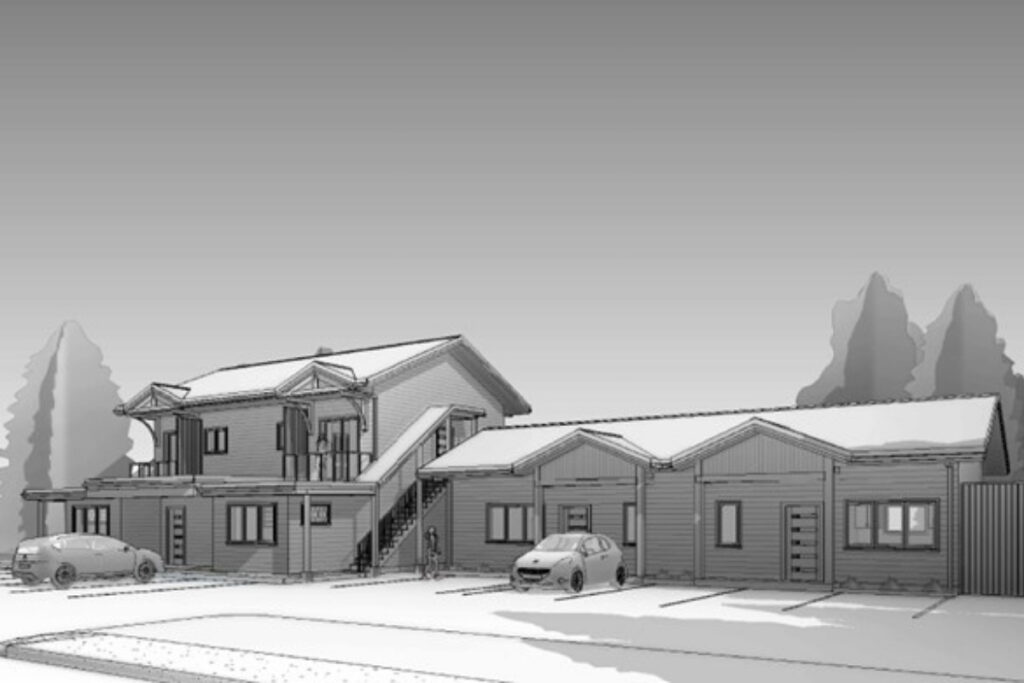
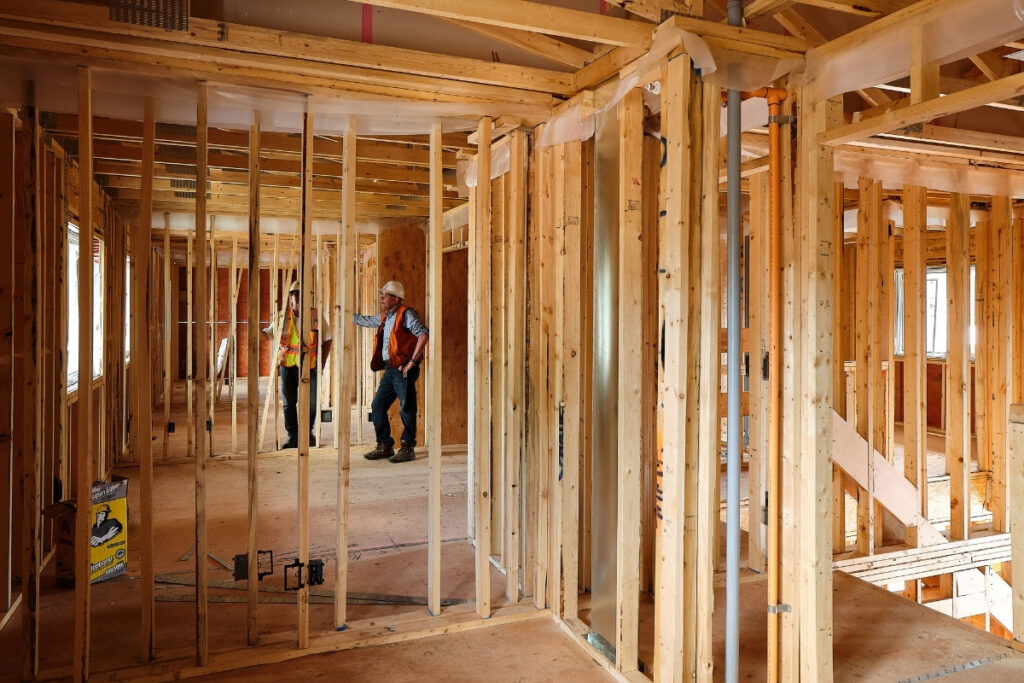

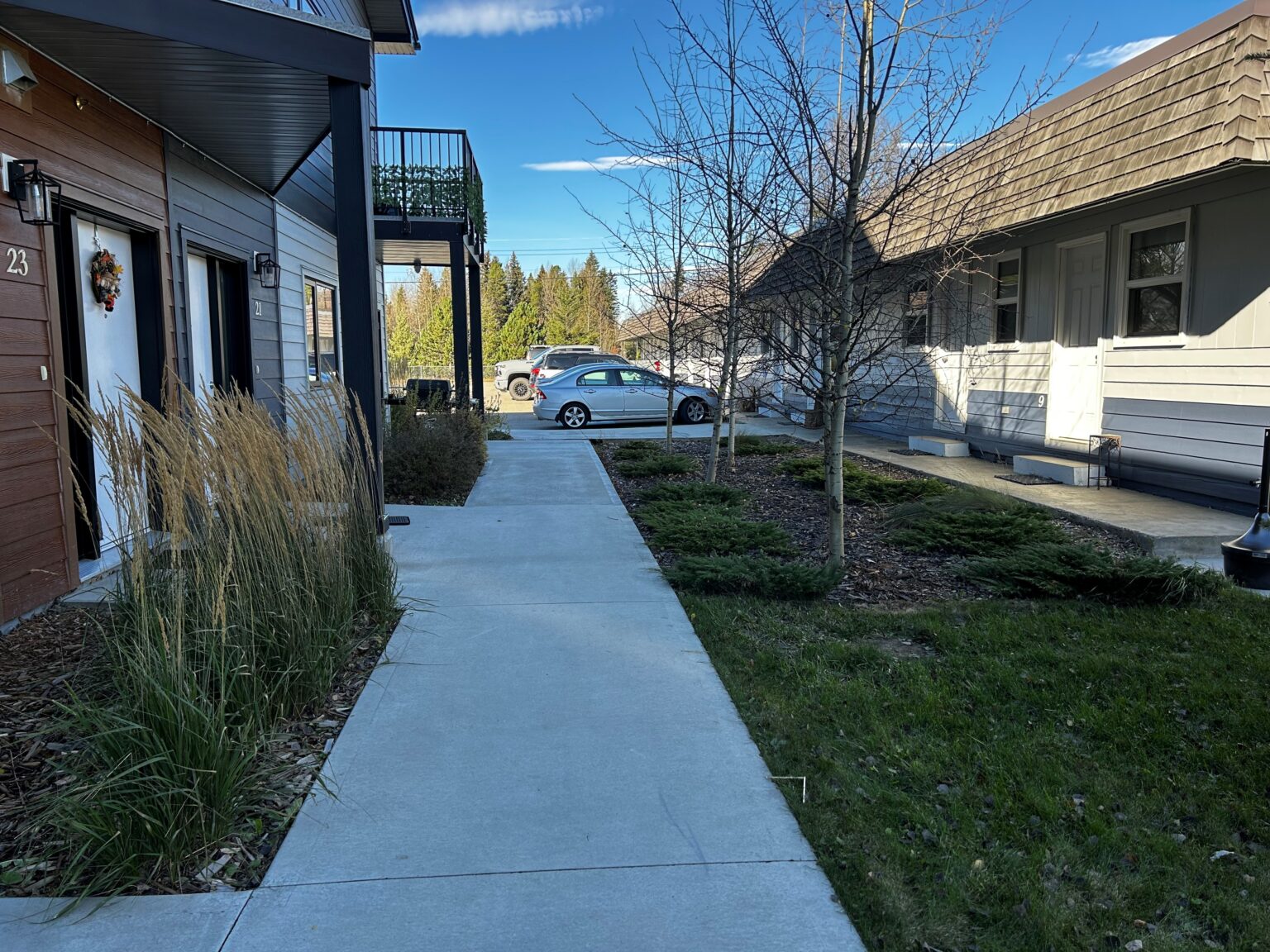
KOOTENAY FRIENDS OF STANDING TOGETHER (KFoST)
c/o KootenayFoST@gmail.com
NEW KOOTENAY GROUP SUPPORTS PALESTINIAN-ISRAELI GRASSROOTS MOVEMENT
FOR IMMEDIATE RELEASE OCTOBER 16, 2025
Nelson – A new group in the Kootenays is launching initiatives to support Standing Together (ST) – a progressive, non-violent, grassroots movement of Palestinian and Jewish people in Israel who are working in co-resistance for a just peace and a new majority in Israel that rejects relentless war.
Kootenay Friends of Standing Together (KFoST) is one of seven Canadian chapters supporting ST’s demands that the Israeli government accept a permanent ceasefire and an end to genocide, occupation, forced expulsion, and settler vigilantism and impunity, in accordance with international law. Standing Together continues to campaign for a permanent lasting peace, beyond the return of hostages and the release of prisoners – a peace agreement that ends the occupation and guarantees both peoples there the right to independence, safety, security, freedom and justice, and where the Israeli government recognizes the state of Palestine.
“I have great respect for Standing Together members braving the current climate of fear and “othering” in what has become a more autocratic, militarized land – to understand each others’ realities, find common ground and work together to change things”, said Jennie Barron of KFoST.
“Israel and Palestine may seem far away,” said Ann Harvey of the KFoST “but you would be surprised how many KFoST participants have ties there – through family connections, past residency, visits or courses there, or through friendships.”
ST is the largest Jewish-Palestinian peace group in Israel, with elected positions of equal representation. It points out there is a huge power imbalance and fundamental structural injustice that needs changing. At the same time, it strives to honour everyone’s pain. It does not tolerate Islamophobia or antisemitism.
Reflecting on the danger of working across social divides, Bessie Wapp of KFoST thinks of her Jewish family’s WWII experience. All the men and boys of the family were killed by local Lithuanians doing the Nazis dirty work, but three separate Lithuanian families hid one young sister each, while their mother and older sister hid in the forest.
“It is thanks to those incredibly brave people that any of our relations survived. Then as now, those who view ‘the other’ as fully human are often taking the greatest risks,” said Wapp.
“This is certainly true in Palestine and Israel,” added Harvey. She spent time there in the 1980’s and has tried to keep abreast of friends there and the struggles. “Some of the most targeted people are those working for dialogue and peace.”
As Standing Together points out: “The occupation of the West Bank and the siege of Gaza must cease- not only because they are brutal and oppressive for the Palestinians – but also because they are undermining the need of Israelis for long-term security. We need to replace the occupation and the siege with an agreed-upon political solution – Israeli-Palestinian peace.”
KFoST’s first big event is coming up Saturday, November 8th. KFoST will screen the award-winning documentary “The Other” with a guest appearance via zoom of Bashar Alshawwa, a national leader in Canada Friends of Standing Together. Alshawwa is a Palestinian from Gaza, living in Canada since mid-2024. He is a distinguished researcher and an expert in regional and international political affairs, specializing in conflict resolution, sustainable development, human rights, and advocacy.
The film will be shown at Nelson’s United Church at 7pm and includes interviews with a diversity of voices in Palestine-Israel, all of whom are working for peace. It speaks to overcoming dehumanization, propaganda, trauma and “othering”, and people’s moral courage, risk, vulnerability and commitment to seek the messy complexity of the truth.
As Desmond Tutu noted “If you want peace, you don’t talk to your friends. You talk to your enemies.”
Tickets are $15 and available at Otter Books (cash only) and here. For more information: kootenayfost@gmail.com .
KFoST has also launched an Instagram and Facebook page (#Standing.Together.Kootenays) and will continue popping up with information tables around Nelson, inviting people to get informed, get involved, and support Standing Together.
-30-
For Immediate Release — October 22, 2025
|
Please contact:For comment on the Goldstream Highway expansion and its impacts: |
REGIONAL DISTRICT OF CENTRAL KOOTENAY – MEDIA RELEASE
October 23, 2025
For immediate release
RDCK Board Highlights – October 25
Click here to view on the RDCK website
RDCK to pause concept design for new office space in Creston
The Board directed staff to pause its detailed investigation to develop a concept design and estimate the renovation of a new RDCK office space on the upper floor of Rotacrest Hall in Creston. Staff were also directed to finalize the feasibility study for potential office space in Creston, including the investigation of properties not owned or leased by the RDCK, and bring a report back to the Board.
Castlegar & District Community Complex Facility Enhancement Project.
The Board authorized staff to prepare a service establishment bylaw and a loan authorization bylaw in the amount of $15 million for the purpose of construction of a second arena and walking track in the City of Castlegar and Electoral Area J.
The Castlegar & District Recreation Commission and RDCK are actively planning the potential new recreation amenity at the Castlegar & District Community Complex. The proposed project is guided by feedback from the Reimagining Recreation engagement process, which helped identify which amenities were a priority for the community and which areas would be willing to participate in funding the project.
Electoral Area I is not included in the proposed new service bylaw and would not contribute to the construction or asset renewal of the new amenity. However, if the projects moves forward, following voter approval, Electoral Area I would contribute to the ongoing operation and maintenance of the new amenity.
2026-2030 Draft Financial Plan for General Administration and Rural Administration
The Board began discussions on the 2026-2030 Draft Financial Plan for General Administration Services (includes corporate administration, finance, information technology, human resources, Chief Administrative Officer, and Municipal Directors) and Rural Administration Services (bylaw services, Rural Director expenses, and election services). The objective is to provide the Board an earlier review of the budget process to allow for feedback, questions, or requests. The final draft of the budget needs to be ready for adoption at the March 2026 Board meeting for submission to the ministry.
Click here to read the draft financial plan review.
Permissive Tax Exemptions
The Permissive Tax Exemption Bylaw was adopted by the Board. Permissive tax exemptions issued by the RDCK Board, exempt eligible properties from taxation for a specified period of time, as they pertain to specific land uses, prescribed by the Province, in the Local Government Act. Properties eligible for a permissive tax exemption include land owned and held by an athletic or service organization for recreational use by the public, places of worship, agricultural or horticultural societies, halls or venues, and art galleries or museums owned by not-for-profit organizations. Applications are reviewed based on four key areas: land and improvement eligibility, applicant eligibility, regulatory eligibility, and taxation considerations.
For more information www.rdck.ca/taxexempt.
Director’s Reports
RDCK Directors provide monthly reports outlining what they have been working on. Click here to read the October reports in the Board minutes.
RDCK Quarterly Report
For the latest RDCK Quarterly Report, which details the current projects and initiatives of the RDCK, please follow the link.
RDCK Board Meeting Video Recording
To view a recording of this month’s meetings, click here.
Discretionary Grants
AREA B Skate Canada BC/YT Section – 2026 Kootenay Region Figure Skating Championships $1,000
AREA F Capitol Theatre Restoration Society – Purchase of 3 Choir Microphones $1,500
Corazon Vocal Ensemble Youth Choir – Weekend Retreat $1,190
AREA H Crescent Valley Firefighters Foundation – Annual Halloween Fireworks Display $750
AREA I Kootenay Boundary Regional Hospital – Light UP the Hospitals! Pledge Day $1,000
AREA J Grand Forks ATV Society – Trails of the North Fork Infrastructure $5,000
Ootischenia Fire Department – Open House $1,200
Deer Park Recreation Society – Generator for Well Pump $2,016.30
Community Development Grants
AREA G Salmo Climbing Society – Climbing Wall Construction – Phase 2 $4,900
AREA H Nakusp Ski Club Association – Insurance Assistance $4,500
Krestova Improvement District – Community Rainwater Harvesting Workshop $4,314.45
AREA J Castlegar Skating Club – West Kootenay Invitational Figure Skating Competition $1,500
AREA K Fauquier & District Golf Club – Hole 3 & 4 Revitalization $7,000
Nakusp and District Museum – Tea Party Fundraiser $1,000
Nakusp Secondary – Emergency Services Program $4,000
Nakusp Ski Club Association – Summit Lake Ski Hill $13,500
Fauquier Care Society – Fauquier Cares Youth Music Program $2,320
Edgewood Volunteer Fire Department Society – Backup Generator $4,000
Community Works
AREA E Taghum Beach Regional Park Improvement Upgrades $75,000
AREA F Taghum Beach Regional Park Improvement Upgrades $25,000
Recreation Commission No. 9 – Area A
Boswell & District Farmers’ Institute $1,865
East Shore Trail and Bike Association $2,051
Riondel Community Park & Campground Society $746
RIondel Community Association $970
Riondel & District Curling Club $1,918
Crawford Bay School Parent Advisory $3,141
Crawford Bay & District Hall & Parks Association $5,497
East Shore Circle of Friends $746
Recreation Commission No. 10 – Portion of Area E – Procter/Harrop/Balfour/Queens Bay
Balfour Senior Citizens Association Branch #120 $988
Balfour Recreation Commission $1,000
Kootenay Lake Family Network $1,000
Castlegar & District Recreation Commission – Castlegar and Areas I & J
Castlegar Parks and Trails Society $55,000
MEDIA RELEASE
Submitted by: Oxygen Art Centre
www.oxygenartcentre.org / info@oxygenartcentre.org
FOR IMMEDIATE RELEASE: NOTICE OF NELSON FINE ARTS CENTRE SOCIETY ANNUAL GENERAL MEETING
Nelson Fine Arts Centre Society (Oxygen Art Centre dba) invites membership and the public to attend their 2024-2025 Annual General Meeting on Friday, November 7, 2025, at 5:00 PM in person at the artist-run centre’s downtown Nelson facility (#3-320 Vernon Street, alleyway access, Nelson, B.C., V1L 4E4).
The Annual General Meeting is a great opportunity for the community to learn about the past year’s programming and operations, review the organization’s financial situation and fundraising initiatives, and gather to vote on the incoming 2025-2026 Board of Directors.
Light refreshments will be provided with thanks to the Kootenay Co-op Grocery, Melissa Owen of Epiphany Cakes, and Berg Lammers of Art of Chocolate for their generous support.
The event will also feature creative prompts for attendees to draw and collage alongside regular business and is a chance to meet with fellow artists and creatives in the region.
The AGM is free to attend; however, membership is required to participate in voting. Not a member yet? Become a member for just $2 – $10 to support arts and culture in your community!
Oxygen Art Centre was founded as the Nelson Fine Arts Centre Society in 2002 by former writing and visual arts faculty at the Kootenay School of the Arts. The centre spent its first two years establishing its educational focus and in January 2005, the society opened the Oxygen Art Centre in downtown Nelson.
“Oxygen” was adopted as the artist-run centre name to underscore how essential the arts are in our lives and our communities and has come to form the organization’s ethos as a creative hub for contemporary art in the region.
At the Annual General Meeting we will celebrate Oxygen’s outgoing board members, Carol Wallace, Alison Talbot-Kelly, Karmelle Spence-Sing, and Gabby Asbell. Artist Carol Wallace has served on the board for six-years, providing a wealth of knowledge, support, and labour for the artist-run centre.
Wallace established Oxygen’s Customer Relations Management software system, served as Secretary for two terms, and led the Fundraising committee with notable success on the Spring 2025 Raffle, among other achievements. Talbot-Kelly, Spence-Sing, and Asbell step down from their roles as directors after supporting the centre in various roles including, Human Resources Chair, Digital Marketing Chair, and Oxygen’s first Youth Chair. Their generosity of time and spirit will long be felt at the artist-run centre.
Two board members will be up for re-election, including Board Chair, Riya Garg, and Treasurer, Christine Wallace. Three vacancies will be open for nominations from membership at the meeting, including incoming Youth Chair, Clee Alice.
Become a Member of Oxygen Art Centre to participate in nominations and voting. The newly formed board will be instrumental in shaping Oxygen’s future as the organization embarks on strategic planning activities in early 2026.
As a non-profit charitable organization and registered BC Society, Oxygen is grateful for the financial support we receive from the Canada Council for the Arts, BC Arts Council, BC Gaming, Province of BC, Government of Canada, Vancouver Foundation, Columbia Kootenay Cultural Alliance, Columbia Basin Trust, Regional District of Central Kootenay’s ReDi program, Osprey Community Foundation, United Way, Nelson Lions Club, and Nelson and District Credit Union. We especially thank our collaborators, volunteers, donors, and members for their continued support of the artist-run centre.
Oxygen Art Centre is located at #3-320 Vernon Street along the alleyway behind Baker Street in Nelson, British Columbia. More information about how to access the facility can be found on Oxygen’s website or by contacting info@oxygenartcentre.org.
Nelson Fine Arts Centre Society (Oxygen Art Centre dba) invites membership and the public to attend the 2024-2025 Annual General Meeting on Friday, November 7, 2025, from 5:00pm to 6:00pm. The event will be held in person at the centre’s downtown facility. Light refreshments donated by the Kootenay Co-op Grocery, Epiphany Cakes, and Art of Chocolate will be provided.
To access the Annual Report documents in advance of the meeting, please visit Oxygen’s website.
– 30 –
Image Credit: bucket full of collected plants from local cutblocks sitting on a table inside Oxygen at the end of Chris Dufour’s residency, August 2024.
Press Contact:
Julia Prudhomme
Executive Director
Oxygen Art Centre
info@oxygenartcentre.org

For Immediate Release
October 24, 2025
Living Lakes Canada joins call for BC to modernize rock-bottom industrial water rates and use funds to support local watershed security
Columbia Basin, B.C. – Living Lakes Canada is joining communities across British Columbia in calling on the Province to modernize outdated industrial water rates and reinvest new revenues in watershed security.
The BC Watershed Security Coalition’s new report, Modernizing Industrial Water Rates in BC: Ending the Great Water Giveaway, shows that British Columbia has some of the lowest industrial water rates in the country, at most $2.25 per million litres. Meanwhile, funding for watershed security has dropped by nearly 80 percent, leaving local water science, stewardship groups, and First Nations without the stable support needed to strengthen community resilience to water-related crises such as droughts, floods, and wildfires.
By modernizing water rates, the Province could generate more than $100 million annually and reinvest a portion of that revenue in the Watershed Security Fund to strengthen local economies, support collaborative watershed initiatives, and help communities prepare their adaptation efforts for the growing impacts of climate change.
“We’re seeing local watershed efforts stall just as the need for action grows. Communities want to protect their freshwater, but without stronger provincial investment, we’re losing momentum as trained staff are left without work and critical monitoring and restoration initiatives are scaled back,” said Kat Hartwig, Executive Director of Living Lakes Canada, a non-profit member of the BC Watershed Security Coalition.
Across B.C’s Columbia Basin and throughout the province, Indigenous and non-Indigenous communities are already taking action to improve water management and local preparedness. With predictable, long-term investment, local efforts could expand to address the cumulative impacts of water insecurity, and share best practices to support communities across the province in their efforts to build climate-resilience.
“Unlocking new, sustainable funding by modernizing industrial water rates can restore on-the-ground capacity, create jobs, and build climate resilience for safe communities, strong local economies, and healthy ecosystems,” said Hartwig.
“This is a fair and practical solution,” said Coree Tull, Chair of the BC Watershed Security Coalition. “We know governments are facing tough budgets, which is why we did our homework. Modernizing industrial water rates would generate new revenue, strengthen communities, and ensure that those who profit most from water use contribute their fair share to steward it.”
The BC Watershed Security Coalition is urging the Province to include this reform in Budget 2026, modernizing how British Columbia values and manages its most vital natural resource.
Photo Caption
Photo 1: Living Lakes conducting hydrometric water monitoring at Dunbar Creek, B.C. LLC Photo
Photo 2: Living Lakes monitoring Assiniboine Creek, B.C. LLC Photo
About Living Lakes Canada
Living Lakes Canada is a national non-profit organization based in the B.C. Columbia Basin, working towards the long-term protection of Canada’s freshwater.
Visit https://livinglakescanada.ca/ for more information.
Contact
Emily Jerome, Communications Lead
communications@livinglakescanada.ca
(403) 463-4494
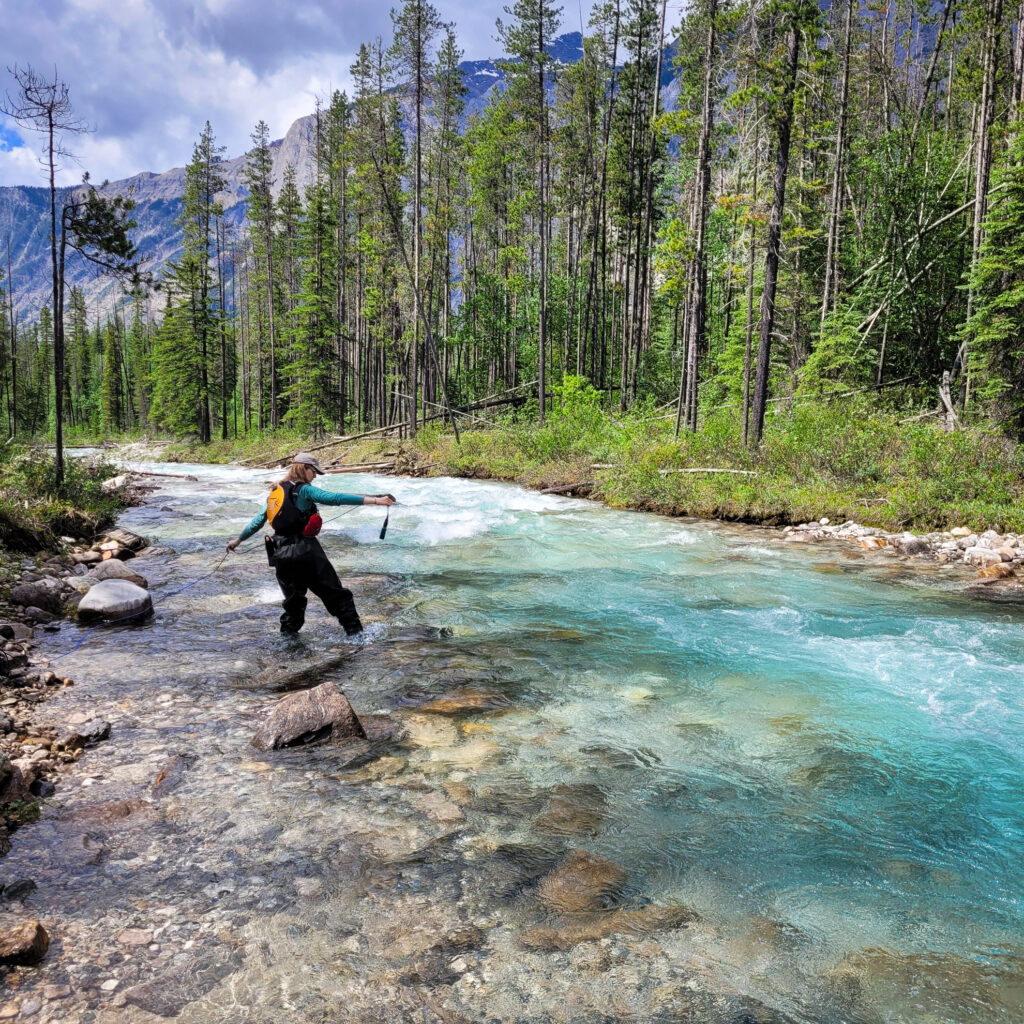
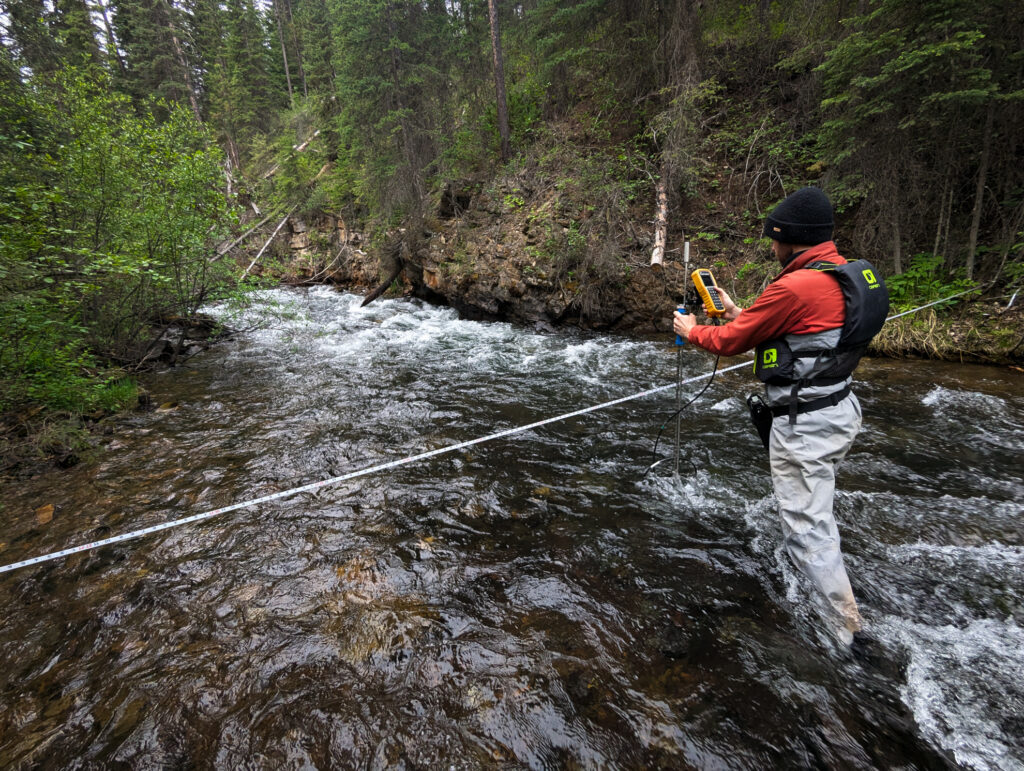
For Immediate Release
October 15, 2025
Persistent drought underscores urgent need for local water action
Despite rainfall bringing temporary relief throughout the Province, British Columbia still faces region-wide drought conditions well into fall.
British Columbia’s Drought Monitoring Summary shows much of the province remains under significant water stress. Many regions are still at Levels 3 to 5, the highest designations on the provincial scale.
In BC’s Columbia Basin, these conditions serve as a stark reminder of how vulnerable our water systems are and how local governance is needed to help build resilience.
The significant drought concerns in southeastern BC demonstrates the need for greater coordination and investment in local watershed security according to Kat Hartwig, Living Lakes Canada Executive Director and Chair of the Elk River Monitoring Collaborative.
“Many of our small and rural communities are already experiencing how water shortages impact everything from drinking water to wildfire suppression,” said Hartwig.
That message echoes the findings of the Elk River Monitoring Collaborative’s Without Water Symposium, held in Grasmere, BC, in June. The recently released What We Heard report captures the collective insights from over 100 participants gathered to discuss the future of water security in their region.
“The message from the symposium was clear: there is enough water, until there isn’t. We need transparent data and watershed planning, and committed and empowered local leadership to manage water quantity across BC’s regions,” continued Hartwig.
Participants at the symposium spoke candidly about personal, cultural, and spiritual connections to water, that watershed-related decisions must be made amid uncertainty, and that integrated decision-making is a necessity.
The feedback informed the following calls to action:
-
Better incorporate Indigenous worldviews into decision-making while considering applied mechanisms such as “rights for nature” or “legal personhood”.
-
Support local and Indigenous water governance with sustained resources such as funded local water tables.
-
Reduce knowledge siloes to increase efficiency by leveraging the power of collective action for community adaptation.
These findings align with growing provincial calls for increased watershed investment, particularly as local governments and rural communities face compounding challenges from drought and wildfire.
“The provincial Watershed Security Fund, with annual disbursements ranging from $3-5 million, provides some support for community and ecosystem adaptation by working to address water security. However, further designated support is still required across the province,” stressed Hartwig.
“Modernizing BC’s Water Licensing system could be a mechanism to help support local water governance and decision-making. In turn, this would benefit local economies and ecosystem services, for our collective well-being,” concluded Hartwig.
For more information and to download the What We Heard document, visit elkrivercollaborative.ca.
***
Photo Caption
Photo 1: The disappearing Shottanana Lake at Yaq̓it ʔa·knuqⱡi’it First Nation. Photo by biologist Ian Adams.
Photo 2: Living Lakes Canada’s Executive Director, Kat Hartwig, delivers a morning welcome speech at the Without Water Symposium. Photo by Evgeni Matveev
About Living Lakes Canada
Living Lakes Canada is a national non-profit organization based in the B.C. Columbia Basin working towards the long-term protection of Canada’s freshwater.
Visit https://livinglakescanada.ca/ for more information.Contact
Emily Jerome, Communications Lead • communications@livinglakescanada.ca
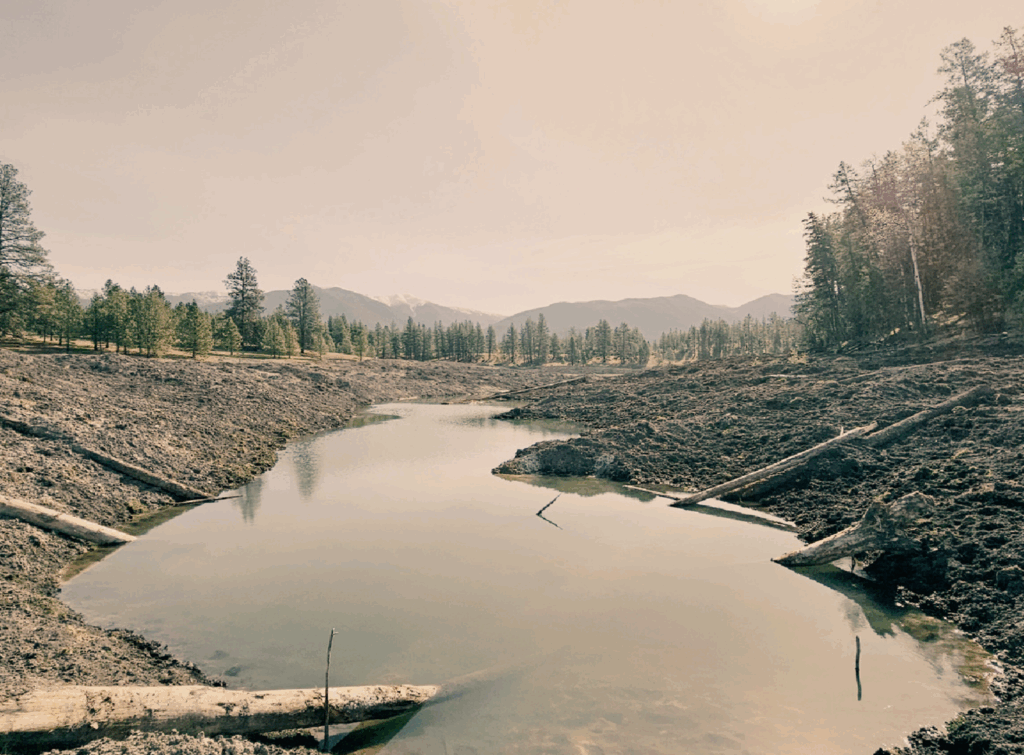
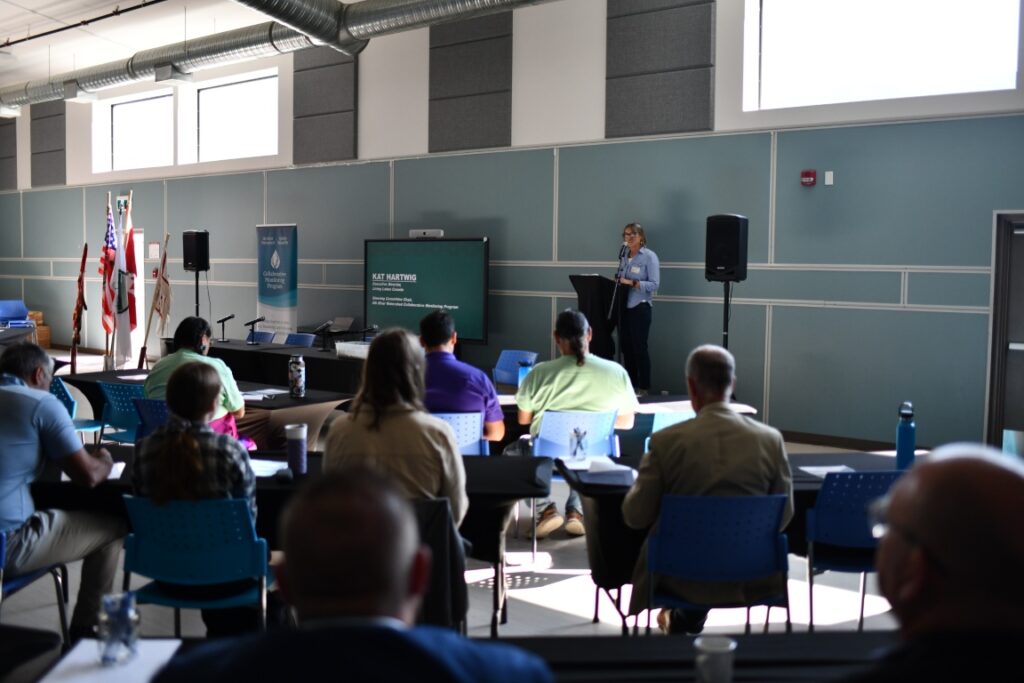
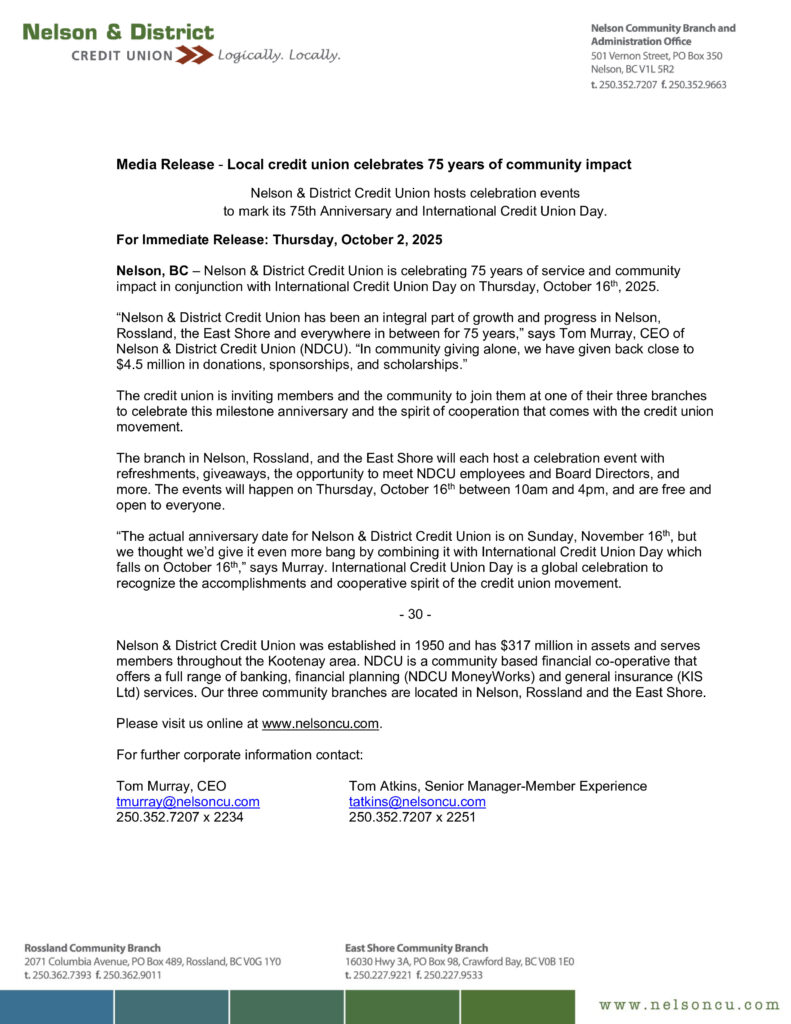
FOR IMMEDIATE RELEASE
Celebrate BC Rivers Day with a Community Cleanup of Cottonwood Creek
Nelson, BC – September 23, 2025
In celebration of BC Rivers Day, Friends of Kootenay Lake Stewardship Society (FoKLSS), in partnership with Living Lakes Canada (LLC), invites the Nelson community to join a streamside cleanup along Cottonwood Creek on Monday, September 29, 2025, from 1:00 to 3:00 PM.
Meeting at the Cottonwood Falls Park parking lot, volunteers of all ages are encouraged to participate in this hands-on effort to protect and restore one of Nelson’s most iconic urban waterways.
This is the second annual cleanup of Cottonwood Creek, supporting LLC’s ongoing Cottonwood Creek Revival Project, which aims to revitalize the creek’s health and biodiversity. Supplies such as buckets, trash pickers, gloves, and garbage bags will be provided in limited quantities — volunteers are encouraged to bring their own if possible.
Light snacks and refreshments will be available, and FoKLSS swag will be offered by donation. Families and children are welcome to attend.
“We’re proud to celebrate BC Rivers Day by connecting the community with this important urban stream,” says Lily Feeback, FoLSS Program Coordinator. “Events like this help us build a culture of care and stewardship around local water bodies.”
How to Participate:
- RSVP via the FoKLSS Facebook Event Page – https://www.facebook.com/friendsofkootenaylake/posts/join-us-for-bc-rivers-day-cottonwood-creek-cleanup-for-the-second-year-in-a-row-/1236518831851859/
- Save time by signing the online waiver in advance:
- Adult Waiver: https://form.jotform.com/242117149041043
- Youth (parental consent): https://form.jotform.com/242117970318254
This event is made possible thanks to the Outdoor Recreation Council of BC, celebrating 45 years of river advocacy and stewardship.
For media inquiries or more information, please contact:
Lily, Program Coordinator lily@friendsofkootenaylake.caGrace Sabo (she/her)
FoKLSS Stewardship Coordinatorwww.friendsofkootenaylake.ca | Become a member!
| For Immediate Release — September 10, 2025 Five years on, B.C. fails to deliver Old Growth Strategic Review “paradigm shift”Wilderness Committee slams the provincial government for inaction on forest promises while unrest continuesVICTORIA / UNCEDED LEKWUNGEN TERRITORIES — Tomorrow is the fifth anniversary of the B.C. government’s Old Growth Strategic Review (OGSR), which marked a turning point in the province’s relationship with forests in 2020. Sadly, the lack of meaningful action on it since then continues to drive the destruction of irreplaceable ancient forests and deepen public distrust in forest management. None of the OGSR’s 14 key recommendations, aimed at shifting the province away from unsustainable, status quo logging practices, have been fully implemented. Instead of decisive action, the government has delivered a series of confusing and opaque deferrals, initiated additional layers of review and consultation, and returned to the same old narrative that “forests are being managed well.” This shift in tone became especially evident after Ravi Parmar took over as Minister of Forests, and the province began downplaying the ecological crisis and promoting the industry as a clean, sustainable economic driver. “We were promised a paradigm shift. Instead, we got business-as-usual forest management with a rebranded message,” said Forest Campaigner Tobyn Neame. “Ancient forests are still being logged and ecosystems are still collapsing. Meanwhile the public is led to believe the province is protecting old-growth.” One of the ways the province claimed they would implement the OGSR was through a biodiversity and ecosystem health framework. However, after showing a draft nearly two years ago, they have not released the framework. Old-growth forests are critical for biodiversity — they provide rare, complex habitats that support species found nowhere else. Many plants and animals, including at-risk species like southern mountain caribou and northern spotted owls, rely on these ancient ecosystems for their survival, and cannot thrive in younger, managed forests. “We need a biodiversity and ecosystem health law, not just a flimsy framework that the province is backpedaling on releasing. Logging in southern mountain caribou habitat is pushing these already threatened animals to the brink of extinction,” said Conservation and Policy Campaigner Lucero Gonzales. “At the end of the day, what species at risk in B.C. need is habitat protection. Half measures, broken promises and endless delays will not save these species from extinction.” One of the OGSR’s core recommendations — to defer logging in the most at-risk old-growth forests — has been selectively and opaquely applied. Meanwhile, ancient forests are being clear-cut, sometimes without consent from First Nations, like the Ma’amtagila Nation, stewarding the land. To make matters worse, the province has intensified its messaging that the forest industry must become an even bigger “economic engine of Canada” in the face of rising U.S. tariffs. Pushing industry expansion at the expense of environmental commitments and Indigenous Rights will only worsen the ecological and social crises. “You can’t build a sustainable economy on a non-renewable resource,” exclaimed Neame. “Old-growth forests take centuries to grow. Once they’re gone, they’re gone. Contrary to what the industry tells you, you can’t clearcut old-growth twice.” Worsening wildfire seasons are making communities across B.C. more vulnerable, adding urgency to the crisis. Contrary to industry spin, logging old-growth forests does not reduce wildfire risk — it increases it. Ancient forests are more fire-resistant than second-growth tree plantations, which are drier and more flammable. “The science is clear. Old-growth keeps water in the landscape, creates shade and slows fire spread. Logging the forests not only destroys biodiversity — it puts people at risk,” said Neame. The government’s failure to act undermines one of the OGSR’s most urgent goals: restoring public trust in forest management. With continued logging in endangered old-growth forests and few legislative changes to protect them, that trust remains broken. Recent blockades in the Walbran watershed on Pacheedaht Territory highlight this broken trust and lack of change over the last five years. As the BC NDP, under Minister Parmar, continues to sideline its environmental promises in favour of short-term industry gains, advocates say the window to act is closing and ecosystems and wildlife are already paying the price. The Wilderness Committee is calling on the B.C. government to fully implement all 14 OGSR recommendations, create a Biodiversity and Ecosystem health Law and end the use of forest policy as a tool to greenlight logging expansion under the guise of economic recovery, now. “This isn’t just about trees. It’s about climate, community safety, Indigenous Rights and the future of forests in B.C.,” said Neame. “The longer the province delays, the more we’ll all lose.”-30- |
| For more information please contact:Tobyn Neame | Forest Campaigner 403-461-5151, tobyn@wildernesscommittee.org Lucero Gonzalez | Conservation and Policy Campaigner 604-700-3280, lucero@wildernesscommittee.org |
| You are receiving this email because you are a media contact of the Wilderness Committee. If you want to change how you receive these emails, you can update your preferences. We respect your privacy. The Wilderness Committee will never rent, sell, or trade our mailing lists. People powered wilderness preservation for a wild future. Charitable Registration # 11929-3009-RR0001 Wilderness Committee 46 6th Ave E Vancouver, BC V5T 1J4 Unceded xʷməθkʷəy̓əm, Sḵwx̱wú7mesh and səlilwətaɬ Territories |
Primary Care Provider Coverage for October 2025
October 1 Wednesday Jayme Ingram, NP(F); Dr Piver*; Jodi Ihas, SW
October 2, Thursday Dr Arduini; Jayme Ingram, NP(F)
October 3, Friday Dr Arduini
October 6, Monday Jayme Ingram, NP(F)
October 7, Tuesday Jayme Ingram, NP(F)
October 8, Wednesday Jayme Ingram, NP(F); Jodi Ihas, SW
October 9, Thursday Dr Arduini; Dr Dryden; Jayme Ingram, NP(F)
October 10, Friday Dr Arduini
October 13, Monday Happy Thanksgiving!
October 14, Tuesday Jayme Ingram, NP(F)
October 15, Wednesday Jayme Ingram, NP(F); Jodi Ihas, SW
October 16, Thursday Dr Arduini; Dr Dryden; Jayme Ingram, NP(F)
October 17, Friday Dr Arduini
October 20, Monday Jayme Ingram, NP(F)
October 21, Tuesday Jayme Ingram, NP(F)
October 22, Wednesday Jayme Ingram, NP(F); Dr Piver*; Jodi Ihas, SW
October 23, Thursday Dr Arduini; Dr Dryden; Jayme Ingram, NP(F)
October 24, Friday Dr Arduini
October 27, Monday Jayme Ingram, NP(F)
October 28, Tuesday Jayme Ingram, NP(F)
October 29, Wednesday Jodi Ihas, SW
